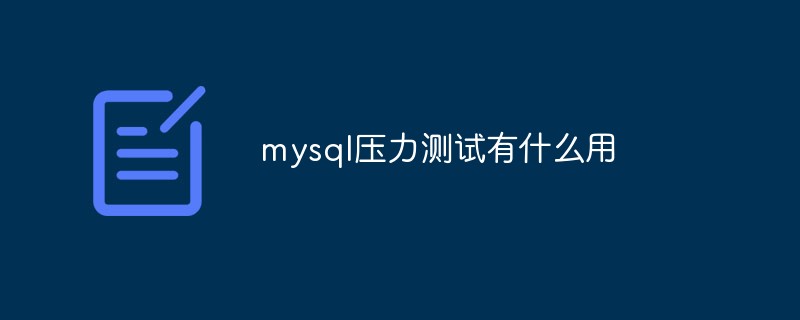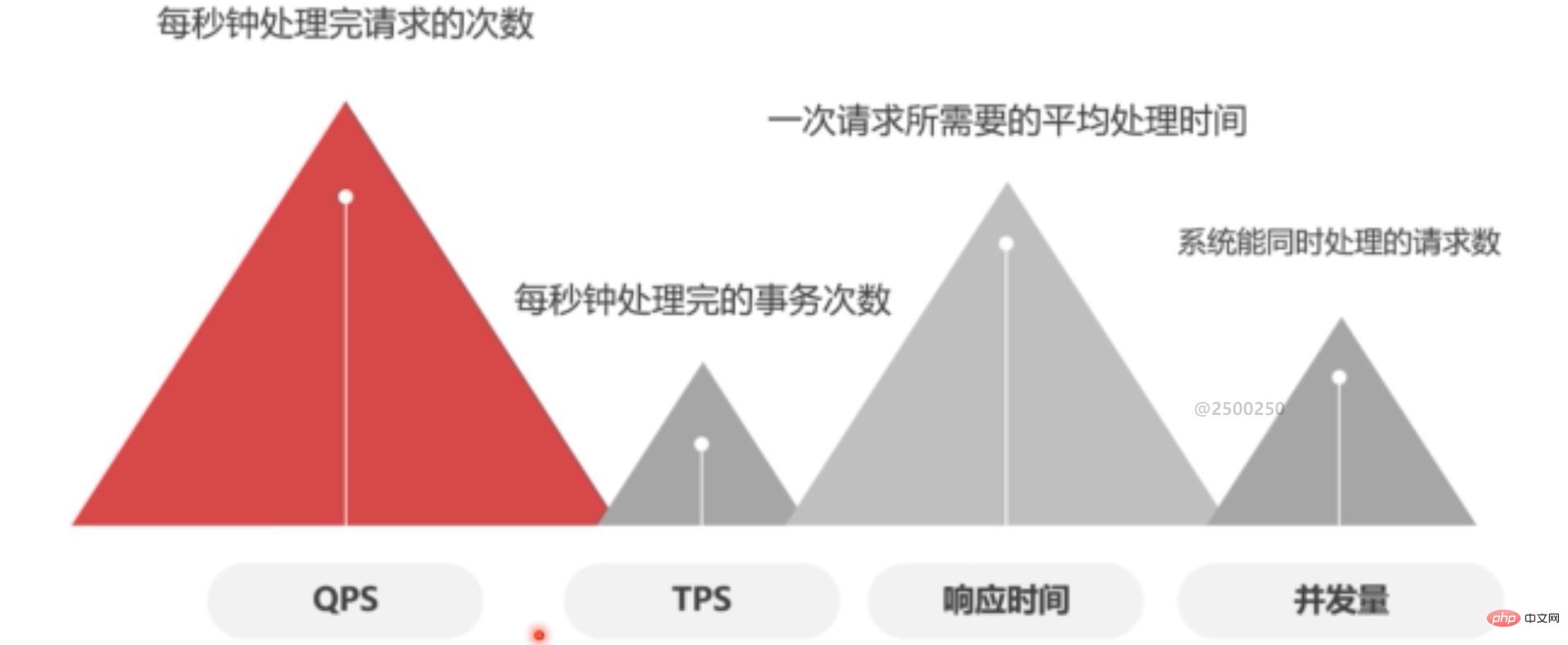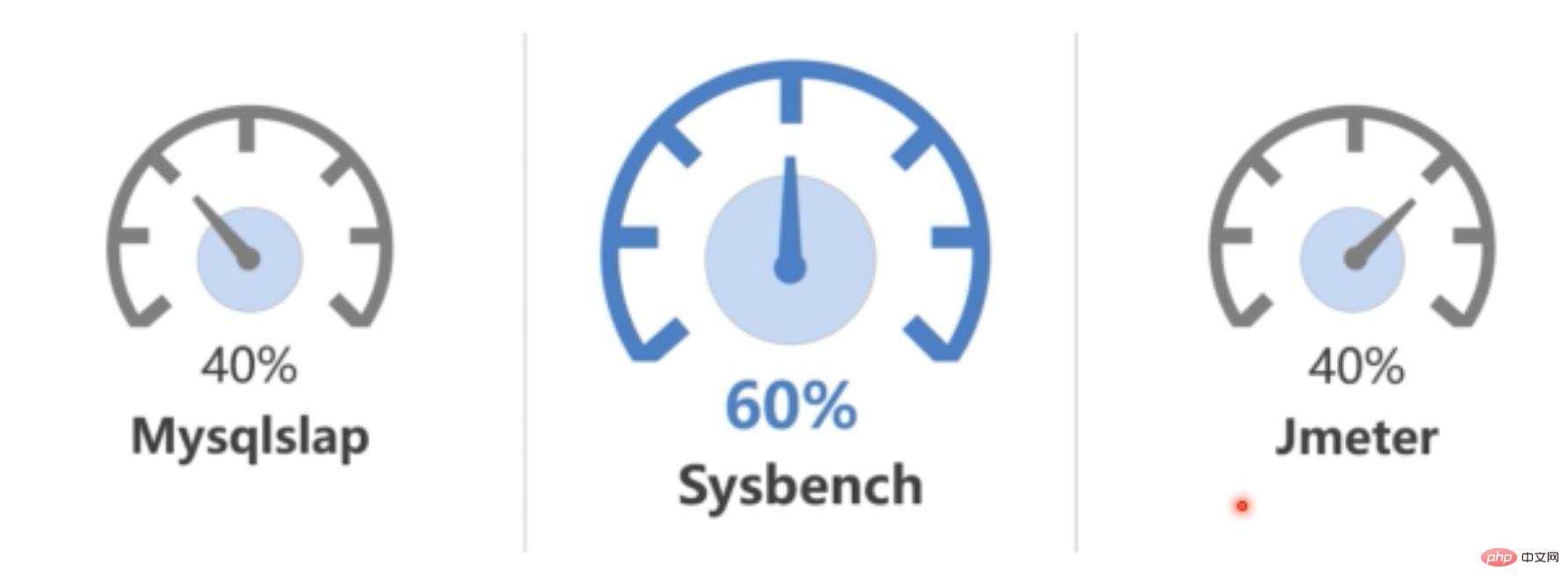Home >Database >Mysql Tutorial >What is the use of mysql stress test?
What is the use of mysql stress test?
- 青灯夜游Original
- 2021-06-07 13:18:592909browse
The role of mysql stress test: test the highest actual performance of primary key hardware. The mysql stress test can put aside the specific business and test the hardware performance separately. Data reading and writing are single table operations, and the test results are closer to the hardware performance.

The operating environment of this tutorial: windows7 system, mysql8 version, Dell G3 computer.
Stress test concept:
Test the highest actual performance of primary key hardware. The data used is automatically generated by the testing tool. These data will not have foreign key constraints. The data The structure is also very simple, that is, the specific business is put aside and the hardware performance is tested separately. Data reading and writing are single-table operations, and the test results are closer to the hardware performance
Stress test indicators

Stress testing tool

1. mysqlslap: MySQL comes with its own tool for targeted testing of MySQL. , if you want to conduct long-term high-concurrency testing of the database, it is not recommended to use
2. jmeter: a graphical stress testing tool based on Java development. It can test a lot of data, but its functions in database testing are very Basic, it can be regarded as an entry-level testing tool
3. sysbench:
can automatically generate test data, and its function is unmatched by other stress testing tools
Related free learning recommendations: mysql video tutorial
The above is the detailed content of What is the use of mysql stress test?. For more information, please follow other related articles on the PHP Chinese website!
Related articles
See more- How to quickly create dynamic web pages through html+css+mysql+php
- How to install and deploy MySQL
- Detailed introduction to the solution for mysql forgotten password and three ways to change the password
- Solve the problem of mysql error This function has none of DETERMINISTIC
- How to use mysqli_real_escape_string() function in PHP?


